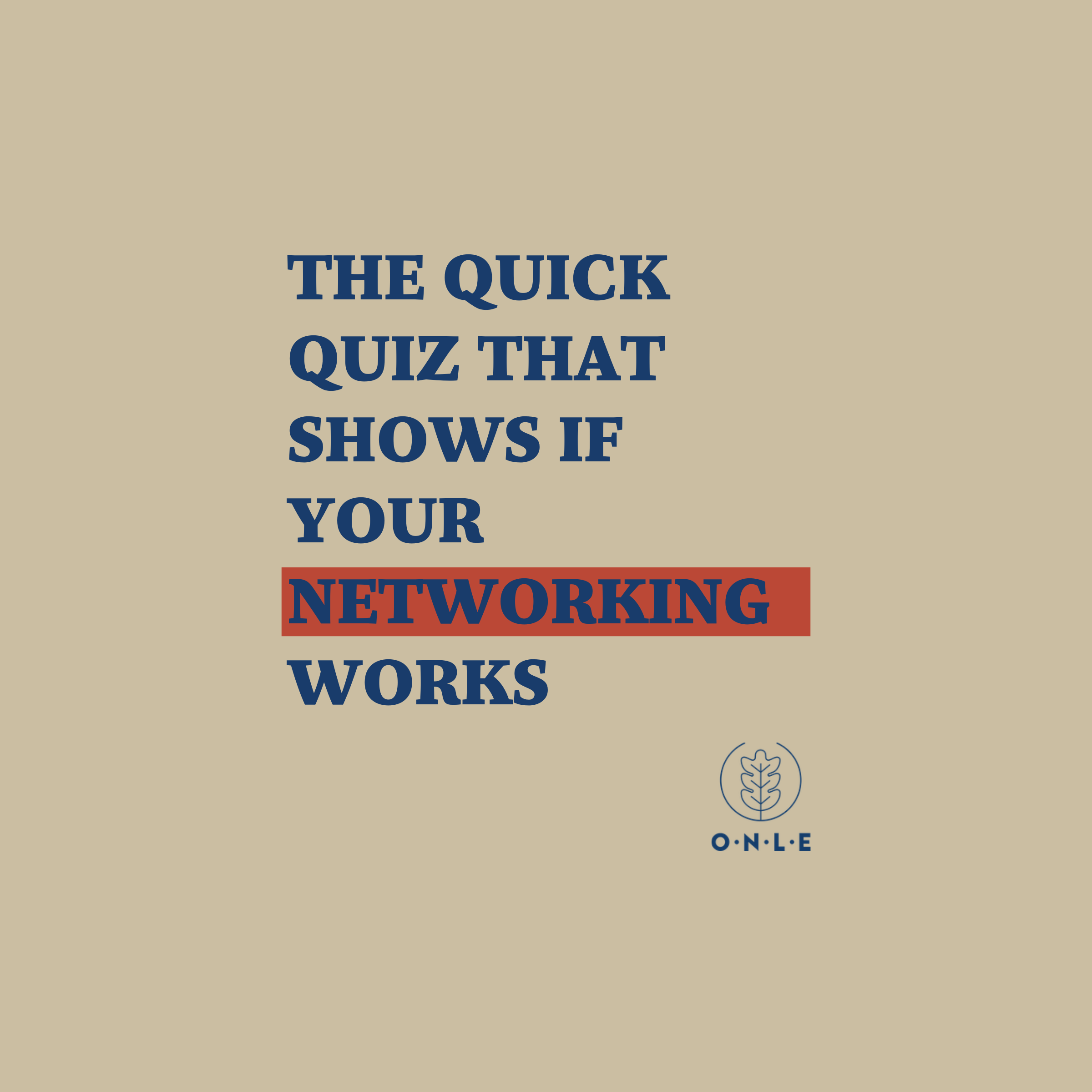Your Networking Success Score: how likely are you to get results?
There are a handful of behaviours that the most effective business networkers always do, almost without thinking. Want to know how close you are to that sweet spot, and what simple tweaks you can make to improve your networking? James West explains how to calculate your Networking Success Score.
Are you a bit envious of those people you meet at networking events who seem to effortlessly get results? That’s not something that happens by chance or simply because they have people skills.
While it’s difficult to talk about business networking outcomes in definitive terms such as “if you do X, you’ll get result Y”, there are a number of habits and behaviours that successful networkers repeat, which put them in a position to generate a never-ending stream of results.
Learning what they are and adapting accordingly can put you into that elite networking category. And it starts with an honest assessment of where you are now. And that’s why I’ve created the Networking Success Score.
How to calculate your Networking Success Score
To understand where you rank, answer the following ten questions and note the score you receive for each answer:
** Caution **
To get a genuine score that can help you add or tweak some networking behaviours, you need to be HONEST. There’s no point answering “Yes” to “I make it easy for others to help me” if you actually ask for something imprecise such as “anyone who knows anyone that needs <insert name of your service>”.
“Are you a bit envious of those people you meet at networking events who seem to effortlessly get results? That’s not something that happens by chance or simply because they have people skills.”
James West, co-founder, ONLE Networking
Networking is a skill you develop iteratively by being curious, asking questions, and making tweaks to your behaviour. If you think about the questions rather than giving a knee-jerk response, you’re far more likely to get an accurate score and a useful steer on what you could change to get more from your business networking.
The 10 Networking Success Score questions
Scoring: Yes = 2 points, Sometimes = 1 point, No = 0 points
1) I clearly explain who I help, why me, and how people can access my services.
Example: “I help SME owners free up cash flow by redesigning their payment terms – book a free review here” is clear. “I help leaders thrive” is vague.
2) I make it easy for others to help me with specific asks, links, and next steps.
“Click here to book my LinkedIn profile review” is clear. “If you’d like to know more, get in touch” isn’t.
3) I allocate time to helping the people in my network.
Examples include buying from or referring your contacts, commenting on posts, making introductions, and most importantly listening more than you speak – everyone wants to be heard.
4) I connect with people after meetings and build relationships over time.
Sending a LinkedIn invite with a personal note, taking time to learn about their business, supporting their social media, etc.
5) I prepare for meetings in advance.
Checking attendee lists, clearing your mind/phone/apps so you can focus, planning what you’ll share and ask for. If you’re half-in’ a meeting, that will show and you won’t build good relationships.
6) I follow up consistently after networking.
A quick thank-you, a follow-up call, or sending the promised resource/connection.
7) I use networking as a way to learn about how my product or service is understood and needed.
Instead of repeating the same pitch, listen carefully to how people respond, ask questions to check how clear you’re being, pay attention to supply and demand (what do people REALLY need that I can provide) and refine your message accordingly.
8) I’m comfortable asking for introductions or exploring whether someone needs my product.
Not pushy – just clear enough to open the door. Remember, people can’t buy from you or refer you if they don’t understand what you sell, who it helps, how it’s accessed, and roughly what it costs.
9) I nurture long-term relationships rather than chasing one-off sales.
Trust builds over multiple conversations. E.g. sticking with one network for six months or more rather than jumping between events hoping to stumble upon a result.
10) I keep learning and improving my networking skills.
Joining training, reading, or reflecting on what worked and what didn’t.
Your Networking Success Score: where do you rank?
16–20 points – Power networker. You’ve nailed the fundamentals. Networking will pay off for you, and people will see you as someone worth knowing.
11–15 points – Promising networker. You’re on the right track but likely leaving opportunities on the table. Pick one or two weaker areas and focus there.
6–10 points – Casual networker. You’re active, but your results will be patchy until you build more consistency and shore up the key areas identified here.
0–5 points – Missed opportunity. You may be showing up, but without changes, you’ll struggle to see value from networking.
Conclusion and next steps
Your Networking Success Score isn’t a judgment – it’s a guide. The best networkers aren’t simply “people-people”; they build habits, learn what works, and practise until it becomes natural.
If your score isn’t where you’d like it to be, the good news is you can change that by reflecting on these questions and suggestions. If you want more support, we’ve built a step-by-step Online Business Networking Course that shows you how to put these habits into action – so you can move from showing up to seeing real results.
With 12 modules teaching every aspect of networking, short videos and guides, plus a workbook, all for £149, our course will help you fast-track your way to power networker status.
Subscribers and blog readers get £20 off the course using code COURSE20.
(ONLE member? You can get the course for £49 – saving £100 – contact ellcie@theonle.network for your code.)
Get the course here: https://theonle.network/online-business-networking-course


